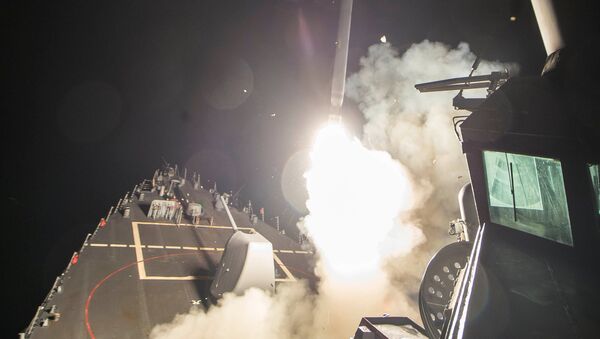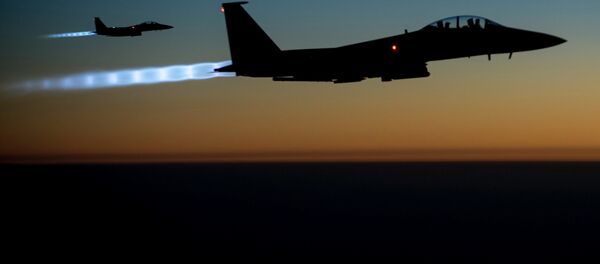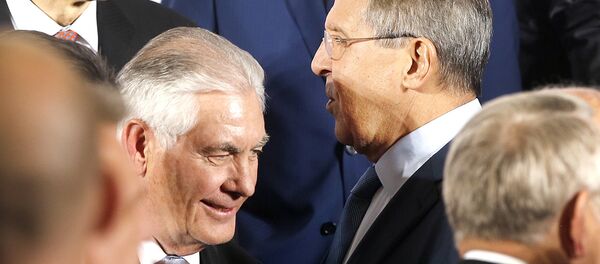"The current situation is unprecedented due to the US administration drastically changing its operations model and its response to crises. In recent days, Washington has violated all the unwritten rules devised in the years since the Cuban Missile Crisis. Even if the Korean situation and the Syrian crisis could be stabilized through political means, the implications of what had happened for world politics and strategic stability would be extremely negative," he said.
In addition, Washington has indicated that it is ready to resolve the North Korean issue through a unilateral action, adding that all options, including a military operation, were on the table.
Kashin explained that the Trump administration made a U-turn on both North Korea and Syria in a matter of weeks, if not days. The Pentagon's operation in Syria came in sharp contrast to the White House's previous statements on its priorities in the war-torn Arab country. Earlier, Trump repeatedly said that fighting radical groups and Daesh in particularly was the highest priority of his administration in the Middle East.
In Kashin's opinion, the nuclear age requires all nations to send clear signals with regard to their intentions when it comes to foreign policy. During the Cold War, both the Soviet Union and the United States made sure that their foreign policy strategies were consistent and coherent. This is something that the current US administration lacks, sending mixed messages on key issues, including Syria and North Korea.
"When it comes to North Korea, on the one hand, there are Trump's remarks that the United States is ready to take unilateral action on North Korea's nuclear program and conflicting reports in the media, citing sources close to the US administration, on the other. In some cases Washington suggests that it is ready to launch a strike on North Korea if China does not agree to impose an economic blockade on its neighbor, while in other cases it highlights that looking for a political solution is a priority," the analyst noted.
Kashin pointed to an additional challenge, which was not an issue during the Cold War. Both superpowers established efficient communication channels to discuss burning issues during some of the most intense episodes in the bilateral relationship. These channels are no longer functioning, the analyst said.
"Previous patterns and rules have ceased to exist against the backdrop of a sudden strike against Syria and Washington's chaotic and aggressive rhetoric. Meanwhile, the Trump administration is apparently trying to achieve swift and decisive results through ill-planned hostile steps," the analyst said.
The US administration's "new reckless initiatives are not only dangerous, but chaotic," Kashin said. "The new type of American policy and the danger that these unpredictable and dangerous moves could be repeated will have grave implications. Other key global players, including Russia and China, would be forced to drastically change their military planning which will make the world a more dangerous place."
Never miss a story again — sign up to our Telegram channel and we'll keep you up to speed!




